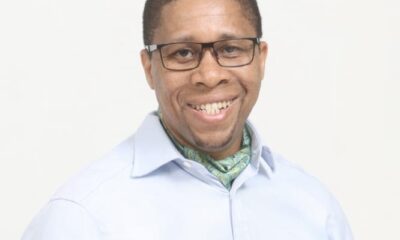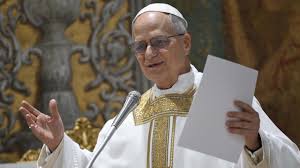FEATURES
ECOWAS @ 50: Celebrating Resilience, Unsung Heroic Achievements
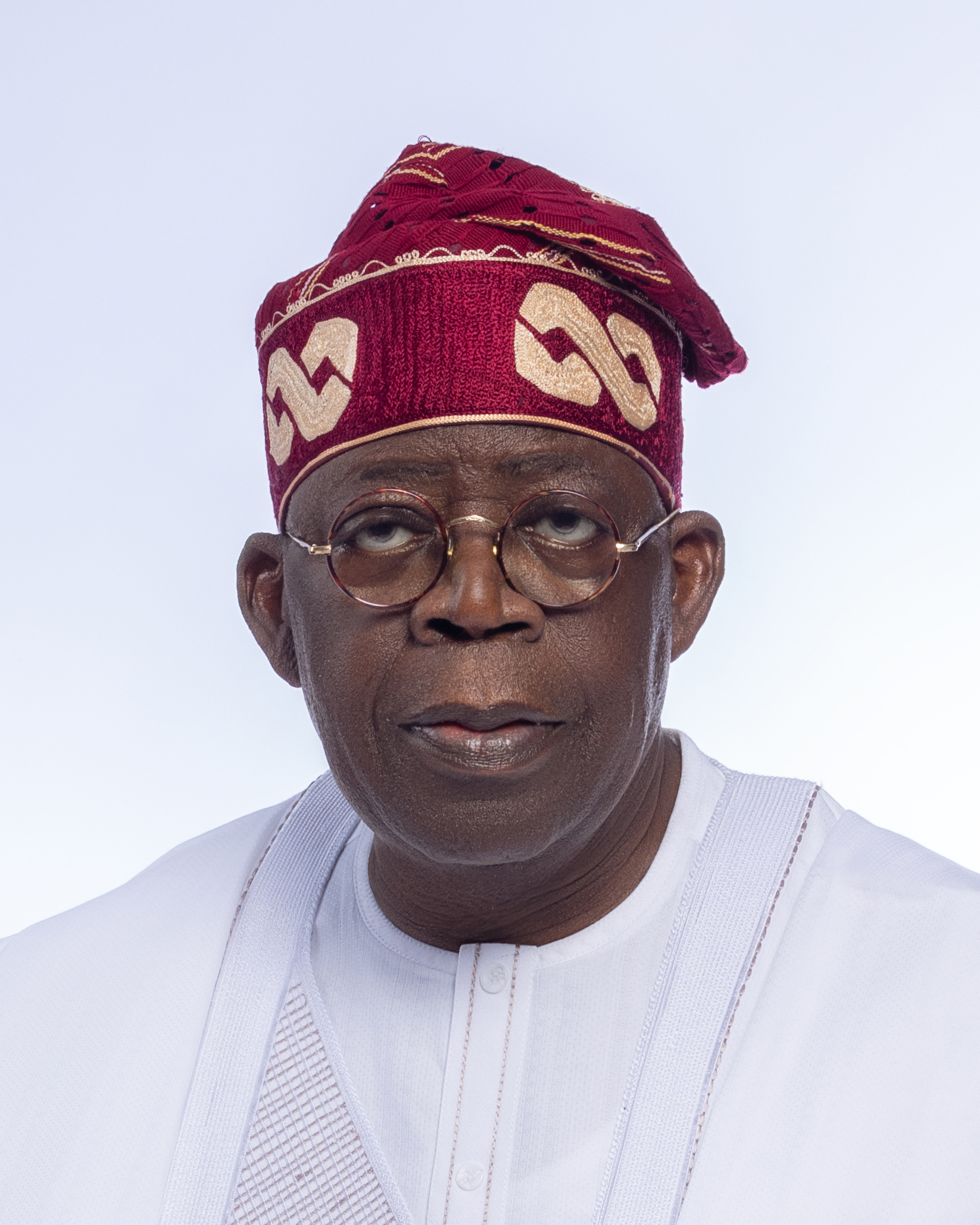
By Fortune Abang
The establishment of the Economic Community of West African State (ECOWAS) on May 28, 1975, under auspices of Treaty of Lagos, marked a new regional chapter and charter.By virtue of the Treaty of Lagos, ECOWAS, comprising 16 West African countries at inception, became Africa’s pioneer Regional Economic Community (REC).
For the benefit of hindsight, ECOWAS founding countries are Nigeria, Benin, Burkina Faso, Cabo Verde, Cote d’Ivoire, The Gambia, Ghana, Guinea, Guinea-Bissau, Liberia, Mali, Niger, Senegal, Sierra Leone, Mauritania and Togo. However, Mauritania formally withdrew from the bloc in 2000, bringing the number of countries to 15.The Treaty of Lagos aims at promoting economic co-operation and integration among the ECOWAS member states with focus on achieving collective self-sufficiency and improving the citizens’ standard of living.Nonetheless, amidst successes so far recorded, the community’s heroic achievements remain unsung 50 years after.Recently, at an event organised by ECOWAS and hosted by the Nigerian Institute of International Affairs (NIIA) to commemorate ECOWAS at 50, its founding fathers, regional and sub-regional leaders, as well as diplomats, underscored the need for continuous growth in strength, unity and purpose of the community.The stakeholders prayed for ECOWAS to march towards peace, prosperity and progress in the spirit of 1975 cooperation, solidarity and of hope that has never been forgotten.They recounted significant progress the community made in terms of implementation of policies and programmes, protocols and operations to stabilise entities such as Liberia, Sierra Leone and Guinea Bissau.More so, they identified other achievements to include trade liberalisation, introduction of policies to reduce trade barriers and promotion of intra-regional trade; thus increasing trade among member states and helping to promote economic growth and development.Regrettably, they say the community failed in achieving a common currency.Observers say the community still faces security challenges such as terrorism, kidnapping, various criminal activities and various activities of man’s inhumanity to man.According to stakeholders, the recent withdrawal by the Alliance of Sahel States (AES)– Mali, Burkina Faso and Niger– from the community poses great concern to ECOWAS as it marks 50 years of existence.Speaking during the ceremony, a former Head of State, retired Gen. Yakubu Gowon, said ECOWAS had evolved into a cornerstone of regional stability and a powerful emblem of African resilience and unity.According to him, the theme of ECOWAS at 50: “Stronger Together for a Brighter Future”, reflects the richness of African culture and tradition.He narrated the diverse views about the founding of ECOWAS on May 28, 1975 under his leadership then as Nigeria’s Head of State.“The view when we started was to promote good governance; there were military and other democratic governments, but the military ensured we did things democratically, militarily democratically.“Yes, with the help of all of us, there will be democratic and secured governments throughout the region; let us not forget the many challenges we have faced over the past 50 years.“There are political crises, coup d’etat, civil wars, economic crunch, pandemics, terrorism and pressure of globalisation, yet through it all, ECOWAS has endured.“It has adapted to changing circumstances, undertaken critical reforms and consistently renewed commitment to the founding ideas that bind us together.“However, today is not only a day to celebrate the past, but it is a moment to reflect upon the present and chart course for the future,” he said.President Bola Tinubu and Chairman of ECOWAS Heads of State and Government, in a keynote address, stressed the need for West African leaders to sustain the legacies of ECOWAS’s founding fathers.He urged the leaders to continue to look beyond artificial borders created by colonialists and embrace one another as a family.Tinubu said that the founding fathers foresaw a more united, harmonious, and purpose-driven regional bloc that would benefit many generations.“In 1975, our founding leaders envisioned a West Africa where borders unite rather than divide a region of free movement, thriving trade, and peaceful coexistence; that vision is still alive.“The regional bloc has lived up to the founders’ expectations in many respects, including peacekeeping, trade liberalisation, free movement of citizens and working together to tackle security issues and global pandemics.“ECOWAS is a beacon of African unity; in overcoming colonial legacies, we brought together Anglophone, Francophone, and Lusophone nations under one vision, an achievement of global significance,” he said.On his part, Mr Mahmoud Youssouf, Chairperson of African Union Commission (AUC), extolled ECOWAS for acting decisively as guardian of peace and builder of dialogue amidst regional challenges.“Fifty years ago, ECOWAS emerged from the bold imagination of visionary leaders who understood, long before many others, that Africa’s strength would be forged not in fragmentation, but in unity.“This vision is embodied in ECOWAS; amid political challenges, pandemics, economic disruptions and the shifting tides of globalisation, ECOWAS has remained steadfast.“Not without trials but never without resolve; in the face of adversity, ECOWAS has not stood idle; it has acted decisively as a guardian of peace and a builder of dialogue,” Youssouf said.In line with this, Pioneer President of ECOWAS Commission, Dr Mohamed Ibn Chambas, expressed confidence that ECOWAS under Tinubu’s leadership, would continue to reawaken the community’s ideals and principles.“Tinubu is very strong in his opposition to military interventions because having elected democratic governments over any other form of government, including military intervention, is the only accepted form of governance globally,” Chambas said.On his part, the Association of Retired Career Ambassadors of Nigeria (ARCAN) hailed ECOWAS for its resilience and notable achievements recorded over the past 50 years amidst numerous challengesAccording to ARCAN’s National President, Amb. Joe Keshi (OON), the 2021 African Integration Report ranked ECOWAS as the best performing among Africa’s eight RECs.“The key achievements include the 1979 Protocol on Free Movement that allows citizens visa-free travel, right to stay in other member states for up to 90 days, ECOWAS passport and Biometric Identification Card Scheme that facilitated regional mobility.“The ECOWAS Trade Liberalisation Scheme (ETLS) promotes duty-free trade within a regional market of approximately 446 million people, boosting economic integration and cooperation among member states.“Infrastructure successes such as the Lagos-Abidjan Highway, the West African Gas Pipeline and sustainable energy projects were also highlighted,” Keshi said.What’s more, Amb. Yusuf Tuggar, Minister of Foreign Affairs and Chair of ECOWAS Council of Ministers, reiterated the bloc would continue to lead as a model bloc among Africa’s regional economic communities.“ECOWAS stands today as a leading model among Africa’s regional economic communities with innovations such as the community levy which has enabled financial autonomy, ambitious programmes and infrastructure projects.“Other innovations are the ETLS, SIGMAT system for customs data integration, Lagos-Abidjan and Abidjan-Dakar transport corridors, West African Power Pool, and framework for the African-Atlantic Gas Pipeline, which embody ECOWAS’s mission of economic and infrastructural connectivity,” he said.Amb. Kalilou Traore, Ambassador of Côte d’Ivoire to Nigeria, said ECOWAS at 50 marked a big moment to celebrate what the community had done so far.“We have had success in many areas; also, we experienced some failures, we need to learn from all those things and project ourselves in the future to make ECOWAS a better place.“ECOWAS has been able to create a regional market. What we are trying to do now at continental level for ACFTA, we already have it in the ECOWAS region, which is a big achievement,” Traore said.The ambassador paid tribute to the founding fathers of ECOWAS led by Gowon of Nigeria and the late Eyadema of Togo.He praised their vision and commitment as standards that should be encouraged to sustain growth of the bloc.All in all, stakeholders agree that ECOWAS member states should continue to work closely in order to break the chains of underdevelopment and lay the foundation for a self-sustaining, prosperous region.They say synergy is required in fostering economic integration, strengthening political and diplomatic cooperation as well as promoting peace and security in the region.(NAN)FEATURES
Improving Performance through 360-Degree Feedback
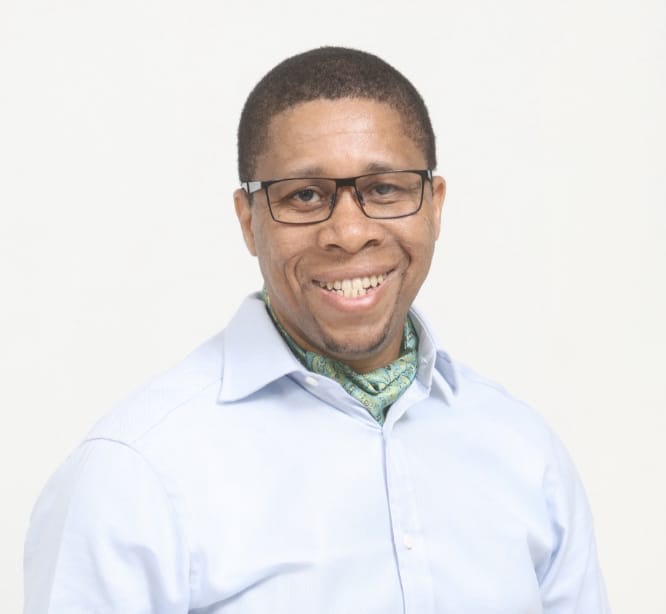
By Omagbitse Barrow
There are many factors that drive the sustainable performance of an individual in an organization over time. These include having a clear vision, being driven by specific goals, collaborating with a supportive team, and having an effective system of performance management, among others (Sonnentag and Frese 2002).
One factor that seems to cut across all of the others and potentially has the most significant impact on performance is feedback (London & Smither 2002).
Feedback is the signaling that people receive (positive or negative) about their behavior and results that challenges and motivates them to improve. Organizations must therefore pay attention to creating a culture of effective feedback so that their leaders, managers, and professionals will have a clear understanding of the changes in behavior and results required as they face the heat of battle each day.As human resources professionals, we should be very concerned about the feedback that positional leaders and managers receive in our organizations for a number of critical reasons. First, as people grow into higher positions of leadership, depending on the dominant leadership culture in the organization, they unfortunately become more and more insulated from the truth and the realities of the organization.
The people around them are either too afraid to confront them with the true state of affairs or will rather say what the leader wants to hear so that they remain in their good books. With an increasingly global workplace with dispersed teams and hybrid work, supervision and performance management have evolved significantly, and managers are struggling to get their fingers on the pulse of their teams and organizations much more these days. The impact is that we are unfortunately creating more positional leaders who are lacking in self-awareness and therefore providing sub-optimal leadership to the people around them.
Secondly, in an attempt to transition from command-style leadership to a culture of transformational leadership, a culture of excessive “politeness” seems to be emerging in our organizations. Managers are unable to be honest in correcting the people around them, and people are increasingly fragile when confronted with the truth about their performance. In this extreme situation, many managers are abandoning their responsibility of giving feedback to their team members altogether.
This is also not a sustainable or effective practice. It creates more dysfunction and undermines the culture of performance.
So, organizations need to find innovative ways of fostering and sustaining a culture of feedback that will ensure that managers get the feedback they need so that they are more effective and productive and that they are more confident in providing feedback to the people around them in a professional and ethical manner that does not sacrifice psychological safety in the workplace.
There are a number of interventions that could support this goal, including providing managers with training on giving effective feedback, providing managers with coaches, and providing training to employees on how to receive feedback (Bickman et al. 2012). One particular intervention that continues to receive attention amongst researchers and practitioners is the use of 360-degree feedback.
While there are arguments in favor of and against the use of 360-degree feedback in organizations (Waldman & Atwater 1998; London & Beatty 1998; Fleenor et al. 2020), organizations that use it effectively have made significant progress in improving the self-awareness of their leaders, creating a culture of performance, and motivating employees towards higher levels of performance (Metcalfe 1998).
360-degree feedback involves managers receiving feedback on their behavior from their supervisors, peers, and subordinates (from all directions). This way, they get a view of their leadership behaviors from the various rich perspectives that supervisors, peers, and subordinates bring. Some people refer to it as the “Wisdom of the crowd. The 360-degree perspective creates a more balanced and holistic view of the leader’s behavior than the typical unidirectional appraisal or feedback from their supervisor alone.
Based on studies that have investigated the use of 360-degree tools (Fleenor et al., 2020; London & Beatty; and our own field experience), we suggest that 360-degree appraisals should be used only for the purpose of development and not tied to rewards and promotion.
When organizations use 360-degree feedback to determine salary increases, bonuses, and promotions, the feedback received is not honest, as people tend to be “polite” in their responses so that no one’s income is curtailed significantly. So, the feedback from the 360-degree appraisals should only be used to identify learning gaps that can be bridged through training, mentoring, and coaching programs.
Also, rather than focusing on just numerical ratings of behavior, 360-degree tools should create an opportunity for more qualitative and descriptive feedback using prompts like “What should the manager STOP, CONTINUE, or START doing? This is called the Traffic Lights approach. Again, this ensures that the feedback is clear and actionable and not just focused on numerical ratings.
Overall, creating a culture of feedback in our organizations is important for achieving sustainable performance. When done properly, feedback supports psychological safety in our organizations and bolsters productivity. 360-degree tools have been found very effective in creating a culture of feedback and performance when used as a tool for development, not reward, and when focused on descriptive and actionable responses, not just numbers.
Omagbitse Barrow is the Chief Executive of Efiko Management Consulting that supports organizations to translate their strategy to results.
FEATURES
Safeguarding Patients Amid Rising Medical Negligence
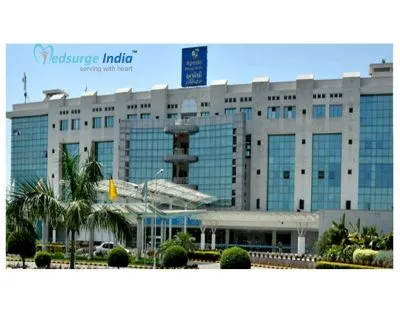
By Abujah Racheal
Hospitals are meant to be places of healing, where lives are saved and suffering eased.
However, for a growing number of Nigerians, seeking medical care has instead resulted in trauma, permanent injury or death.
Across Lagos, Enugu and other parts of the country, a series of alleged hospital negligence cases between late 2025 and January 2026 has again brought patient safety, accountability and the fragility of Nigeria’s health system into public focus.
Health experts say the incidents point not to isolated errors by individual practitioners but to deeper systemic weaknesses.
Dr. Emmanuel Agogo, Director of Pandemic Threats at the Foundation for Innovative New Diagnostics (FIND), said the incidents were not random mistakes.
“They reflect years of government neglect, chronic underinvestment, workforce shortages and weak regulatory oversight”.
According to him, the result has been preventable injuries, avoidable deaths and a gradual erosion of public trust in healthcare institutions.
One case that has drawn widespread attention is the death of 21-month-old Nnamdi Nkanu, son of internationally acclaimed novelist Chimamanda Ngozi Adichie.
The toddler reportedly died at a Lagos hospital after a brief illness, with the family alleging negligence, including denial of oxygen support and excessive sedation.
The hospital has denied the claims, stating that the child arrived in critical condition and was treated in line with international standards.
An independent investigation is ongoing.
For many Nigerians, the incident underscored broader concerns about the health system.
“This loss reminds us that no social status can shield citizens from systemic failure.
“How many more deaths must occur before we confront the reality that our healthcare system has deep structural weaknesses?” Agogo said.
Following the incident, Lagos Governor Babajide Sanwo-Olu ordered a formal probe and reiterated the state’s zero-tolerance stance on medical negligence.
In spite of this, public confidence remains fragile.
Beyond high-profile cases, courts are becoming avenues for families seeking redress.
In Lagos, Mr Alfred Ogene, a stroke survivor, is suing R-Jolad Hospital over alleged gross negligence during a medical procedure in November 2025.
He claims improper catheterisation resulted in severe urinary damage, emergency surgery and long-term complications.
His legal team is demanding over N800 million in damages. The hospital has denied the allegations.
In another case, a Lagos-based lawyer alleged that negligence at a Lekki hospital led to his wife’s death hours after childbirth in December 2025.
At the University of Nigeria Teaching Hospital (UNTH), Enugu, management confirmed an internal investigation into claims of delayed and inadequate emergency care following the death of a patient.
Experts say such cases, many of which do not gain national attention, reveal deeper structural challenges within the healthcare system.
According to them, Nigeria’s health sector operates under significant strain.
The country has approximately one doctor for every 5,000 people, far below the World Health Organisation’s (WHO) recommended ratio of one doctor to 600 patients.
Emergency paediatric services remain understaffed and unevenly distributed, contributing to an estimated 200,000 preventable child deaths annually.
Hospital infrastructure presents similar challenges.
With an estimated 0.8 to 0.9 hospital beds per 1,000 people, Nigeria falls well below the global average of 2.3 beds per 1,000.
Lagos State alone reportedly faces a shortfall of more than 66,000 hospital beds, while public hospitals in the state collectively provide fewer than 4,000.
In addition, some tertiary hospitals reportedly operate with fewer than five intensive care unit (ICU) beds, often without sufficient specialist staff or modern monitoring equipment, limiting timely life-saving interventions.
While private hospitals generally perform better in responsiveness and patient satisfaction, experts caution that they also face challenges, including inadequate equipment, staff shortages and weak regulatory compliance.
“The leadership class relies heavily on medical tourism, If those running the country do not trust the system, it raises questions about public confidence,”Agogo noted.
Compounding the situation is sustained brain drain, with thousands of doctors and nurses leaving Nigeria each year.
“They are not leaving only for better pay, they are leaving a system that does not provide the tools needed to save lives”.
Under Nigerian law, victims of medical negligence can seek redress through civil litigation, criminal prosecution and professional disciplinary processes.
Civil claims allow victims or their families to seek compensation for medical expenses, pain and suffering, and loss of income.
However, claimants must prove duty of care, breach and causation, a process often hindered by limited access to evidence and expert testimony.
In severe cases, healthcare providers may face criminal charges such as manslaughter or reckless endangerment, although prosecutions are rare due to the high burden of proof.
Professional sanctions, overseen by the Medical and Dental Council of Nigeria (MDCN), may include suspension or withdrawal of licences.
However, such sanctions do not automatically provide compensation for victims.
Experts argue that the fragmented accountability framework offers limited deterrence against unsafe practices.
In spite of the challenges, some initiatives demonstrate that targeted reforms can improve patient safety.
At the Lagos University Teaching Hospital (LUTH), a Rapid Response System has enhanced early detection of patient deterioration through structured protocols and multidisciplinary training.
Nationally, Basic Life Support training under Nigeria’s Surgical, Obstetric, Anaesthesia and Nursing Plan has improved emergency response skills among healthcare workers.
Digital health solutions are also expanding access.
Telemedicine platforms under the Nigeria Digital Health Initiative now connect specialists with patients in underserved communities, helping to supplement overstretched hospital systems.
Pharm. Estelle Mbadiwe, Founding Partner at Ducit Blue Solutions, described repeated preventable deaths as “a reminder that the system is failing the people who depend on it most”.
Former President of the Nigerian Bar Association, Dr Olisa Agbakoba, warned about the dangers of sedatives such as propofol, noting that poor oversight could turn routine procedures into serious incidents.
Dr. Obiageli “Oby” Ezekwesili, founder of Human Capital Africa, called for comprehensive health sector reforms.
“There has never been a more urgent moment for a courageous Health Sector Reform Programme,” she said, stressing that citizen advocacy could help translate policy commitments into improved safety outcomes.
Similarly, Rivers State Commissioner for Health, Dr Adaeze Oreh, highlighted the ethical and operational pressures facing hospitals.
“Fragmented and heavily burdened systems force compromises that can cost lives,” she said, adding that human life must remain sacrosanct.
Experts agree that reform efforts must be supported by public engagement. Transparency, public reporting of hospital performance, whistleblowing and community monitoring are seen as critical to improving patient safety.
Until patient safety becomes a measurable and enforceable national priority, analysts warn that hospitals may continue to struggle to balance care delivery with safety, leaving families to bear the consequences of systemic shortcomings. (NAN)
| ReplyReply allForwardAdd reaction |
FEATURES
Insecurity: UNICEF, CAN, Stakeholders Want Military Outpost to save Education in Niger

By Dan Amasingha, Minna
From available datas, insecurity has escalated the number of out of school Children in Nigeria especially in the North central states of Niger, Venue, Plateau, Kogi, Kwara and Nassarawa UNICEF, figured estate about 10.5 million of the Nigeria’s children aged 5-14 are not in school as only 61 percent of 6-11 years olds regularly attend primary and schools and only 35.
6 percent of children aged 36-59 month receive early childhood education.In this report, Our Correspondent, Dan Amasingha examines the underlying security challenge confronting Agwara, Borgu local government areas bordering Republic of Benin and the need to urgently halt the trend before the education sector collapses in the area.
Residents of Papiri are yet to come to term of the recent large scale abduction of the St. Mary Catholic school , parents and the abducted pupils were only savouring the Yuletide period when the date devil bandits struck again in the first week of January, 2026 at Kasuwsn Daji in Borgu local government area of Niger State, a stone throw from Papiri, this time they left in their trail over fourty dead, beyond disrupting the socio- economic activities of the area, the majority casualty is the educational sector and school age Children.
This bleak educational future for the leaders of tomorrow, the Children necessitated the cal from various quarters on the need for the government to beef up security particularly in Papiri so as to ensure children in Agwara local government area are not denied education as well as the general population.
The United Nations Children’s Fund Charter (UNICEF) states that all children, no matter where they live or what their circumstances, have the right to quality education. In the north of the country, the picture is even bleaker, with a net attendance rate of 53 percent. Getting out-of-school children back into education poses a massive challenge.
Findings by our Correspondent have it on good authority that there is no military base in the area encompassing the entirety of Agwara LGA and the vast majority of Borgu LGA which houses the iconic Kainji dam and the Kainji National Game’s reserve. The Police in the area are also ill equipped and have shortage of personnel, few if any operational vehicles nor sufficient firearms to tackle insecurity. It was also noted that there is a serious lack of co-ordination between the various security agencies operating in the area, in particular with the military. Both Borgu and Agwara Local Government areas were originally part of Kwara state, but on 27th August 1991 they became part of present day Niger State. However, it would appear that the military command structure has not been changed to date. Such a laborious chain of command poses a serious obstacle to the rapid deployment of troops to deal with banditry and insurgents. There is an urgent need for streamlining of the Military chain of command and a review of the co-operation or lack of it between all the Security agencies.
In view of the above, St. Mary’s Private Catholic Primary and Secondary schools Papiri, in Agwara local government area of Niger State, need the total Security support of not only the state, but specifically of the Federal government, if they are to have any hope of ever re-opening. Since the abduction of school children in Papiri there has been a Mobile Police presence of approximately 40 personnel guarding the village and the school. However, in spite of this, every day more and more people in Papiri and the nearby Villages of Guffanti, Sokonbara and Bako-Mission are packing their belongings and fleeing the area entirely due to fear of further attacks, especially since the nearby Kasuwan Daji massacre. It is imperative therefore that there is a permanent Military as well as Police base on the ground in the area, capable of not only securing life and property, safeguarding the lives of Pupils, teachers and villagers alike, but also capable of taking the fight to the enemy. The current situation in Papiri is not easy on the Mobile Police where 40 of them are expected to defend against at least more than twice that number of attacking bandits.
Niger State government’s recent directive that schools with threats of terrorist attack should remain closed has given credence to speculation that St Mary’s Catholic School, Papiri, being the only quality educational institution in the entire area, is being threatened with permanent closure, since to date there is no sufficient security presence in the area capable of defending the village of Papiri itself, talk less of the school.
It is commendable that in order to complementing the government’s efforts and to ensure children acquire basic education in Agwara LGA, the Catholic Diocese of Kontagora established the fully equipped St. Mary’s Private Catholic Primary and Secondary schools Papiri, with both Day and Boarding students to serve those who attend school from far distant communities which are up to 100 kilometres away. The abduction of 230 children and teachers and the recent slaughter of 42 persons in Kasuwan Daji market, bordering Agwara and Borgu local government areas and only 15km from Papiri is another clear indication of the absence of a credible security presence in the area as the terrorists were able to burn the market and village to the ground in broad daylight without fear of any security force personnel.
The Proprietor of the school and Catholic Bishop of Kontagora Diocese, Most Rev. Bulus Dauwa Yohanna commended the Federal and State governments, the security agencies and the Media for their roles in ensuring the children and teachers were rescued. He urged the government to see that Papiri Schools speedily re-open adequately protected by a well-equipped and sufficiently numerous security force capable of protecting the children and deterring and if necessary repelling any future attack.
In a passionate appeal during an interview with Journalists, Bishop Bulus D Yohanna who is also the Chairman of the Christian Association of Nigeria (CAN), Niger state chapter, appealed to the government to stand by their words by establishing a military outpost and empowering the security agencies to always be present in Agwara.
He then explained that “the school was established for our children irrespective of religion or tribe so as to build a better future for them, let us not allow their dreams to die because of this ugly incident. Please, all that the government needs to do is beef up security so that our children, teachers and even people in the area can feel secure and learn in a safe environment”.
Also, in a statement, on Tuesday 6th January 2026, the United Nations Resident and Humanitarian Coordinator in Nigeria, Mohamed Malick Fall, called for stronger protection of civilian spaces and schools following the spate of attacks in Niger State.
Fall also described the abduction of children and teachers of St. Mary’s Catholic School as a grave violation of human rights, including the right to life and the protection of civilians, saying “particularly, the abduction of women and children undermine the right to education.”
Niger state Commissioner for Homeland Security, Barrister Maurice Magaji in a telephone interview said comprehensive efforts are being put in place to ensure security is in place in Agwara, Borgu and other troubled LGAs.
He however explained that the government would not want to put the lives of its people at risk by rushing to open schools in troubled areas saying “the government has a responsibility to protect lives and properties. Life comes before education, let us be calm and as soon as there is calm within a short time, the schools in these troubled areas will be opened in phases.”
A chieftain of the All Progressives Congress (APC) in Niger state, Hon. Jonathan Vatsa called for the immediate establishment of a military base and the deployment of marine Police to Agwara local government as a way to minimize the persistent terrorists’ attacks in the area.
The former Publicity Secretary of APC in the state said in a statement in Minna titled: “Urgent call for the establishment of Naval Base and Deployment of Marine Police in Agwara local government area of Niger State”, said the persistent and current situation is beyond what the state government alone can handle, stressing that the federal government must come to the rescue of the state government in tackling the challenges.
Vatsa, who was a Commissioner for Information, Culture and Tourism expressed great worries that the River Niger has increasingly become a security blind spot that enables armed groups to evade land-based security operations, adding that “this vulnerability was glaringly exposed during the insecurity around Papiri community where attackers leveraged riverine routes to perpetrate violence and retreat beyond the immediate reach of conventional security forces”.
It should be recalled that after the Federal Government’s delegation led by Mallam Nuhu, Ribadu, the National Security Adviser to President Bola Tinubu visited Kontagora, parents, relatives and authorities of St Mary Catholic School, Papiri, Agwara Local Government Area of Niger State, were able to breathe a hopeful sigh of relief with the assurance that “the 230 children and teachers are doing fine and would return back safely”.
Worried by the level of insecurity and government’s directive to close schools till further notice in Agwara and other areas, the Principal of the school, Rev. Sister Felicia Gyang, appealed to the federal and state governments including the security agencies to prioritise security in Agwara LGA so as to ensure the children are not denied education and for the safety of everyone including teachers, parents and residents.
One of the teachers who narrated his ordeal, Cyril Ibrahim while commending the school authority, the government and security agencies for their roles in ensuring their safe rescue, appealed for a beef up in security in Papiri, saying “this is the only good school in this local government area that serves more than 50 communities. We are begging the government to do all it can to ensure this school continues by providing security for us.”
Another teacher, Hannah Tevi who was abducted alongside her son and her husband who was visiting them at the time, said the experience was traumatic for them all and still remains fresh in their memories, particularly as most of the time they have to vacate their houses and hide out in the bush for fear of the bandits who freely travel throughout the area both by day and night. Mrs. Tevi then appealed to the federal and state governments to come to their rescue saying “we (teachers) will be out of jobs if this school is not reopened and security beefed up. If there is security, we will feel secure and be able to teach our children.”
Markus Abuka whose only child was abducted and rescued said that although they as parents were devastated, that all hope was not lost as they all resorted to prayers and to trust the promise made by the federal government through the NSA. However, pained by the recent attacks that claimed 42 lives in nearby Kasuwa Daji, Abuka who was seen in a trending short video alongside other villagers, urged the government to set up a military base and joint security outpost to safeguard the lives of the people in Agwara LGA and neighbouring communities such as Sokonbara and other vulnerable villages like Bako-Mission in Borgu LGA, where bandits either by day or night, regularly pass through on their way to carrying out atrocities. Our rescued children he said are presently being doubly traumatised as they are forced together with their parents to hide in the bush at night for fear of being kidnapped again or murdered. The threat we are now facing goes far beyond the school in Papiri. Between Sunday
December 28th and Saturday 3rd January 2026, the date of the attack in Kasuwan Daji, these bandits roamed freely around the area both day and night without being challenged by anyone. Markus pleaded with the authorities to come to their rescue before the next attack which surely is not far off.
Another parent, Livinus Samaila appealed to the government to do all it can to ensure the school still functions as it is the only school that serves almost 60 communities. In his words: “if nothing is done, all our children will be deprived of education, and many of us will end up murdered by these terrorists because we do not have anywhere to go to. We need security and Military outposts so that our children and even we the parents can live freely without fear of being attacked.” Without the rapid deployment of an overwhelming Military force, North Borgu and Agwara face enslavement by these bandits.
Some of the students Florence Michael and Felicia Musa while recounting their ordeals in the hands of the abductors, prayed the governments to do all they can to provide security, saying “we want to continue with our education. If we don’t continue, we will all go back to farms and be denied basic education”.
President Bola Tinubu quickly responded to the killing of 42 persons by terrorists in Kasuwan Daji by directing the Minister of Defence, the Chief of Defence Staff, the Service Chiefs, the Inspector-General of Police, and the Director-General of the Department of State Services (DSS) to track down and apprehend the perpetrators by ensuring that they are swiftly brought to justice.
He also directed security agencies to rescue all the abducted victims urgently.
Tinubu through a Press statement by his Special Adviser on Information and strategy, Bayo Onanuga strongly condemned the attack on the Kasuwan Daji Community and the abduction of women and children.
President Tinubu then assured that “as a country, we must stand together as one people and confront these monsters in unison. United, we can and must defeat them, deny them any sanctuary. We must reclaim the peace and security of these attacked communities”.
A few days ago, the Chief of Army Staff (COAS), Lt. Gen. Waidi Shaibu said when he visited Niger state that additional resources for training of the Nigerian Army will be provided to help stem the tide of insecurity confronting Niger state.
In his words: “We will conduct operational visits to Headquarters of 31 Artillery Brigade and 18 Brigade in Bida to assess operational gaps with the view to addressing them.
“I commend the state government for its continued support to the TRADOC Nigerian Army and all other formations in the state. The Nigerian Army looks forward to additional cooperation and collaboration with the state government”.
Niger state Governor, Umaru Bago after the gruesome killings and attacks noted that it is disturbing and worrying to start the year with such unfortunate incidents.
| ReplyReply allForwardAdd reaction |

